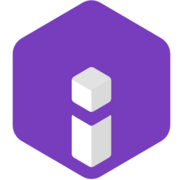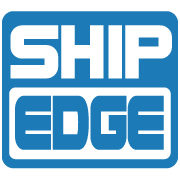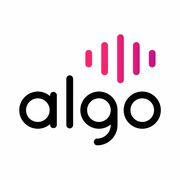
Best Supply Chain Management Software 2026
Supply chain management (SCM) is the oversight of materials, information, and finances as they move in a process from supplier to manufacturer to wholesaler to retailer to consumer.
We’ve collected videos, features, and capabilities below. Take me there.
All Products
Learn More about Supply Chain Management Software
What is Supply Chain Management Software (SCMS)?
Supply chain management software (SCMS) is used to automate and optimize the range of activities required to plan, control and execute product flows, traditionally in manufacturing or production industries. SCMS processes encompass:
Acquisition of raw materials
Production processes
Product distribution
Delivery to the final customer
Supply chain management is a complex process that involves communication and collaboration between multiple parties to source and purchase materials for manufacturing and production - including trading partners, suppliers, manufacturers, and distributors.
The goal of SCMS is to coordinate the flow of products in the most efficient and cost-effective way. However, the degree of supply chain management required varies between companies. A number of variables can influence a company’s SCMS needs:
Size of operations
Number of suppliers involved
Type of industry
Product complexity
Length of the supply chain
This leads to the SCMS product space being very fragmented. Accordingly, there is a range of products available - including large SCMS suites, ERP suites, industry-specific software, and point solutions for steps in the supply chain.
Supply Chain Software vs. ERP Software
Supply chain management software manages data concerning incoming raw materials from external suppliers. In contrast, Enterprise Resource Planning (ERP) Software is more internally focused. It manages administrative tasks by tying front office and back office operations together. This includes assisting with product planning and the physical production of finished goods.
However, supply chain capabilities are often included as a component of ERP suites.
The features provided by ERP suites are usually more generic than supply chain point solutions or industry-specific software. SCMS point solutions may focus more on individual modules such as operations planning or inventory management.
Supply Chain Management Features & Capabilities
SCMS products may specialize in one area or offer a range of features across areas. Here are the traditional modules and features that SCMS products may include:
Supply Chain Planning
Custom alerts
Scenario-based plans
Reorientation of supply network around demand needs
Optimization of resources
Supply forecasting
Capacity estimation
Optimization of materials and employee allocation
Supply network coordination
Procurement
Raw material sourcing
Supply market assessment
Cost Analysis
Expense Logging
Order Management
Order fulfillment optimization
Return services
Generating purchase orders
Tracking purchase orders
Scheduling supplier deliveries
Creating pricing and product configurations
Logistics and Transportation Management
Packaging
Delivery planning across transportation channels
Route optimization
Rate analysis
Shipping performance
Labor management
Fleet management
Warehouse & Inventory Management
Automation of warehouse operations
Inventory storage
Stock monitoring across warehouses
Inventory tracking (using barcodes, serial numbers, or RFIDs)
Asset management
Future inventory and price forecasting
Demand Management
Demand signal sensing
Demand forecasting
Customer analytics
Optimization of future inventory stock
Sales and operation planning
Pricing and promotion tracking (this may be used more by retailers)
Advanced features
Some vendors also include more complex features such as:
Supply chain analytics
Product lifecycle oversight
Internet of Things (IoT) support
Supply Chain Management Software Comparison
When comparing supply chain management software, consider the following factors of each product:
- SCM Suite vs. point solution: There is a mix of point solutions and end-to-end SCM suites available. Point solutions can facilitate functions like fullfillment, procurement (or “source-to-pay”), and order and inventory management, and are ideal when businesses only engage with select steps in the supply chain process. The full SCM suites tend to be tailored towards enterprises, but can offer more streamlined SCM workflows when the business operates on even level of the supply chain.
- Company Size: Supply chain management products are usually scaled for enterprises, who have greater need to intensive supply chain management processes. However, these capabilities have become more accessible to smaller businesses as cloud-based software has entered the market. Reviewer demographic trends will help signal what scale a particular product is focused around.
- On-premise vs. cloud-based: There are a range of legacy products that are still on-premise. However, the market has been shifting towards cloud-based SCMS, with the lower overhead and greater flexibility that entails. Consider whether the benefits of adopting a cloud-based platform justify a shift away from more familiar or legacy products and the change management that comes with that.
Start a supply chain management software comparison
Pricing Information
Supply chain management software is often sold as a module of large enterprise ERP or SCM suites. Standalone supply chain software products are cheaper, but pricing still varies greatly by overall sophistication and feature set. Most vendors offer free trial versions of their software and will provide pricing information on request.
An alternative option is open source supply chain management software. There are a number of free open source versions of SCMS. However, they are typically either broken up into modules or industry-specific solutions. For example, Odoo offers free versions of its manufacturing and inventory management software. One drawback to open source software is that it may not include as many features as the paid versions do.






















